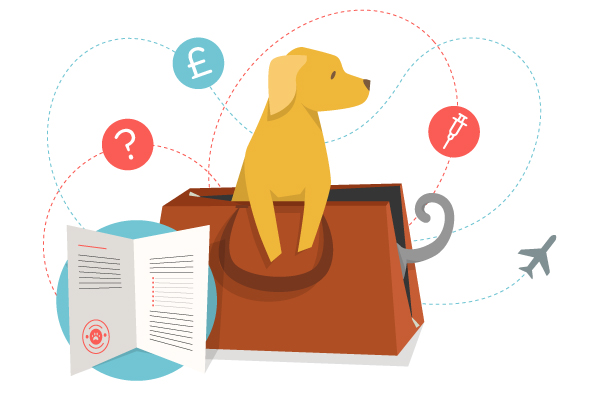Moving to a new home is stressful for everyone in the family. For dogs and other pets, it can even be traumatic. Animals are by nature very intuitive and very sensitive about their surroundings. Dogs and cats in particular are territorial. Anything that will remove them from their territories will be extremely upsetting for them. Thus, it’s important that you make some time to prepare them in advance for the relocation. Make sure you’ve packed your pet’s necessities like their feeding bowls, grooming kit, litter, medication and a good supply of your regular pet food. Bring along your dog’s favorite toys so he won’t get homesick in your new place.
Before moving, the animals should be given a thorough check-up by your veterinarian to make sure they are healthy enough to travel. Also, you will need to get a copy of your pet’s health record to take with you to your new home. Feed your pets as far in advance as possible, or just wait until you arrive at your destination, since they may get dizzy and vomit during the long ride.
On the day of the move, make sure that a member of the family shall be soley responsible for your dog or cat. Keep the animal on a leash or inside a cage. Depending on your pet, you may be able to have the animal ride shotgun with you in the car or rental truck on the way to your new home. If this is not possible, then either secure the dog on the back seat with a purpose-made seatbelt/harness, or behind a fitted dog guard in the space to the rear of the back seat.Most pet stores carry seat-belt adapters to fit dogs. For cats and smaller animals, you can use a crate or portable kennel for the trip.
Never transport animals in the cargo area of a rental vehicle. Moving vans, trucks and trailers are not designed for transporting animals and do not provide proper ventilation and airflow. In the case of U-Haul, it would be a violation of the rental agreement if you transport any animal in the back of their moving vans, trucks or trailers. Make sure the animals have some kind of information tag on them during the travel, to include the pet’s name, your name and phone number along with the full address of your new home, in case they got loose or misplaced while in transit.
On arriving at your new home, keep your pets indoors until they’ve learned to finally settle in. With new surroundings and new smells around them, your pet may initially feel disoriented, stressed, frightened even. Help them adjust by being there for them during the first few days.

